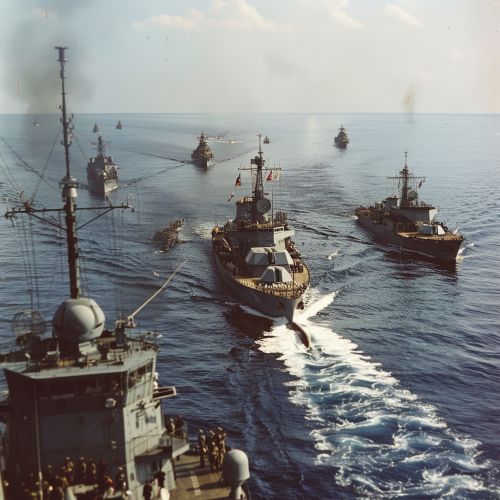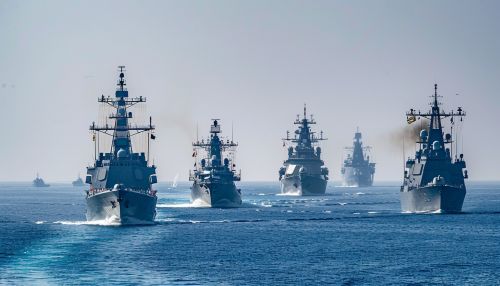Mediterranean and Middle East theatre of World War II
Overview
The Mediterranean and Middle East theatre of World War II was a major theatre of operations during the Second World War. The vast size of the Mediterranean and Middle East theatre saw interconnected naval, land, and air campaigns fought for control of the Mediterranean, North Africa, the Horn of Africa, the Middle East and Southern Europe. The fighting in this theatre lasted from 10 June 1940, when Italy entered the war on the side of Germany, until 2 May 1945 when all Axis forces in Italy surrendered. However, fighting would continue in Greece – where British troops had been dispatched to aid the government – during the early stages of the Greek Civil War.


The Mediterranean theatre
The Mediterranean theatre of World War II, also known as the Mediterranean Campaign, was a major theatre of the war between the Allies and the Axis. It opened with the Italian declaration of war on 10 June 1940 and ended with the victory of the Allies in May 1945.
Italian Campaign
The Italian Campaign of World War II, also called the Liberation of Italy, was the series of Allied beach landings and land battles from Sicily and southern Italy up towards the German defensive lines north of Rome during 1943 and 1944.
North African Campaign
The North African Campaign of the Second World War took place in North Africa from 10 June 1940 to 13 May 1943. It included campaigns fought in the Libyan and Egyptian deserts (Western Desert Campaign, also known as the Desert War) and in Morocco and Algeria (Operation Torch), as well as Tunisia (Tunisia Campaign).
The Middle East theatre
The Middle East theatre of World War II is defined largely by reference to the Eastern Mediterranean, but also includes North Africa, and Iraq. During the Second World War, the Middle East was a significant region of strategic importance due to its geographical location and the resources it possessed, particularly oil.
Anglo-Iraqi War
The Anglo-Iraqi War was a British-led Allied military campaign against the Kingdom of Iraq led by the Axis aligned government of Rashid Ali, who had seized power during the Second World War with assistance from Germany and Italy.
Syria-Lebanon Campaign
The Syria-Lebanon Campaign, also known as Operation Exporter, was the Allied invasion of Vichy French-controlled Syria and Lebanon in June–July 1941, during the Second World War.
